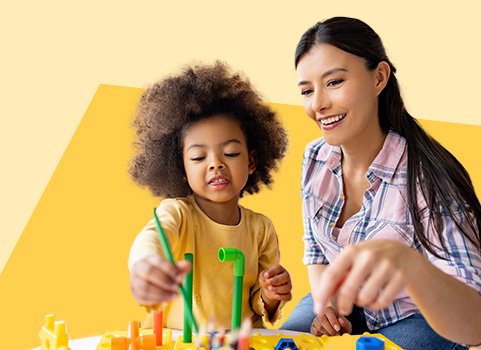The role of educators in early childhood education
Roles and responsibilities of an early childhood educator

1. Looking for milestones
The first role you'll have is that of a guide. It's your job to present exciting new paths to children and steer them toward success and away from harm. It's not always easy to keep a child engaged and interested. New teachers may struggle to find new experiences and activities to share with their students. Remember that encouragement leads to achievement. Listen to and observe children's learning and playing styles to uncover activities that resonate with them. Praise their positive accomplishments and keep track of their progress to show them and their parents how far they've come.
2. Developing social skills
Early childhood is a significant period of development. Social skills play an enormous role in how children will interact with their peers, parents, teachers, as well as everyone they meet throughout their lives. It's your role not only to encourage communication, but to listen carefully to a child's words and actions. Movements, facial expressions, and other behaviors hold important clues about a child's needs, learning style, and interests.
Rather than coerce social interaction, early childhood teachers nurture social growth through fun and positive activities. There's no standardized formula for success; each child develops social skills at their own pace and in their own unique way. It's up to you to recognize these qualities and nourish them.
3. Talking to parents
As an ECE teacher, you'll communicate not only with children, but with parents, staff, school administrators, and other community members. Many new teachers think they should have all the answers, but this simply isn't possible. Often times parents, relatives, coaches, and other role models hold valuable keys that can help you better understand a child. Don't be afraid to ask questions, seek advice, share your thoughts, and work together with others. Teamwork is especially crucial in finding solutions to developmental delay.
4. Organizing it all
When you're not interacting with children or adults, you'll be managing the classroom and materials. This includes planning lessons, tidying the classroom, keeping track of paperwork, formulating new activity ideas, and investing in new learning materials. It's a tough task, but one that will help children reach their full potential.
Comments
Post a Comment